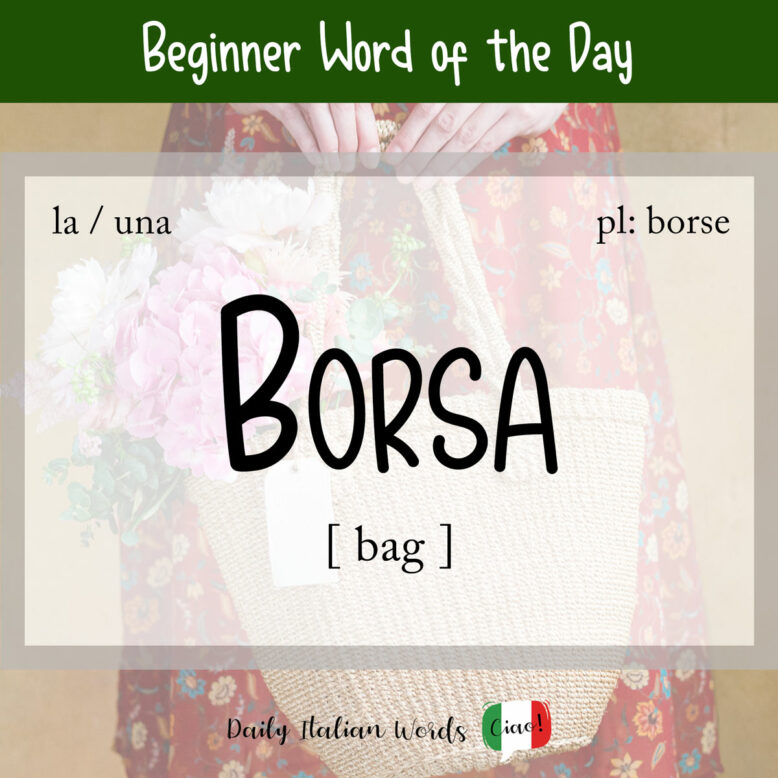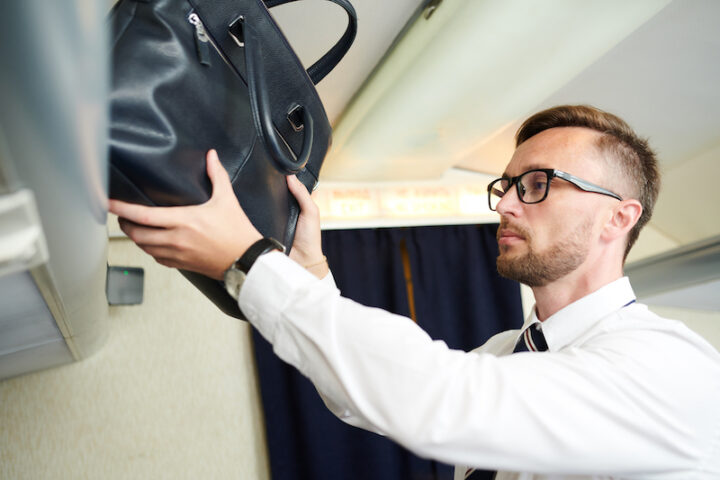One possible translation for the word bag in Italian is borsa (feminine, plural: borse)*.
*Note: Another word that translates as bag in Italian, along with its related forms sacchetto and sacca, is sacco. Sacco generally denotes any large sack, such as a sack of potatoes (sacco di patate) or a trash bag (sacco della spazzatura), whereas sacchetto is mostly used to talk about single-use plastic bags (sacchetti di plastica). Sacca is the closest synonym of borsa, as it refers to any large bag made of soft material, used to carry or store linen, food and so on.

Originally, borsa referred to a leather or cloth bag of any shape or size used to carry money or other objects. Today the term designates both a ladies’ handbag as well as a larger rigid bag with a handle, used above all to carry personal objects such as books and documents.
Mi hanno rubato la borsa!
My bag was stolen!
Note that the diminutive borsetta is often used instead of borsa to describe a handbag or purse. The augmentative borsone refers to a large bag.
Below are a few of the most common types of bags you’ll come across:
- borsa di plastica = plastic bag
- borsa di stoffa = cloth bag
- borsa di pelle = leather bag
- borsa da viaggio = travel bag
- borsa della spesa = shopping bag
- borsa a tracolla = shoulder bag

A bag filled with ice and applied to the body to reduce swelling is called a borsa del ghiaccio (ice pack) whereas a hot water bottle is known as a borsa dell’acqua calda.
Because borse were traditionally used to carry money, the word may also be used to talk about things that concern the financial world such as, for example, una borsa di studio (a scholarship), la borsa (the stock market) or la borsa nera (the black market).
La borsa ha chiuso in negativo anche oggi.
The stock market had another negative closing.

Below are a few additional money-related expressions using borsa that you may hear in daily conversation:
- avere la borsa piena = to be rich (lit: to have a full bag)
- mettere mano alla borsa = to pay, fork out (lit: to put a hand on the bag)
- tenere la borsa stretta = to be tight-fisted (lit: to hold the bag tight)
- stringere i cordoni della borsa = to reduce or stop one’s spending (lit: to tighten the purse strings)
And let’s not forget the classic exclamation armed thieves shout out while threatening their victims: O la borsa o la vita! (lit: Your money or your life!)
Finally, just as in English, the plural borse can refer to the bags that appear under a person’s eyes when they are tired.
Heather Broster is a graduate with honours in linguistics from the University of Western Ontario. She is an aspiring polyglot, proficient in English and Italian, as well as Japanese, Welsh, and French to varying degrees of fluency. Originally from Toronto, Heather has resided in various countries, notably Italy for a period of six years. Her primary focus lies in the fields of language acquisition, education, and bilingual instruction.


